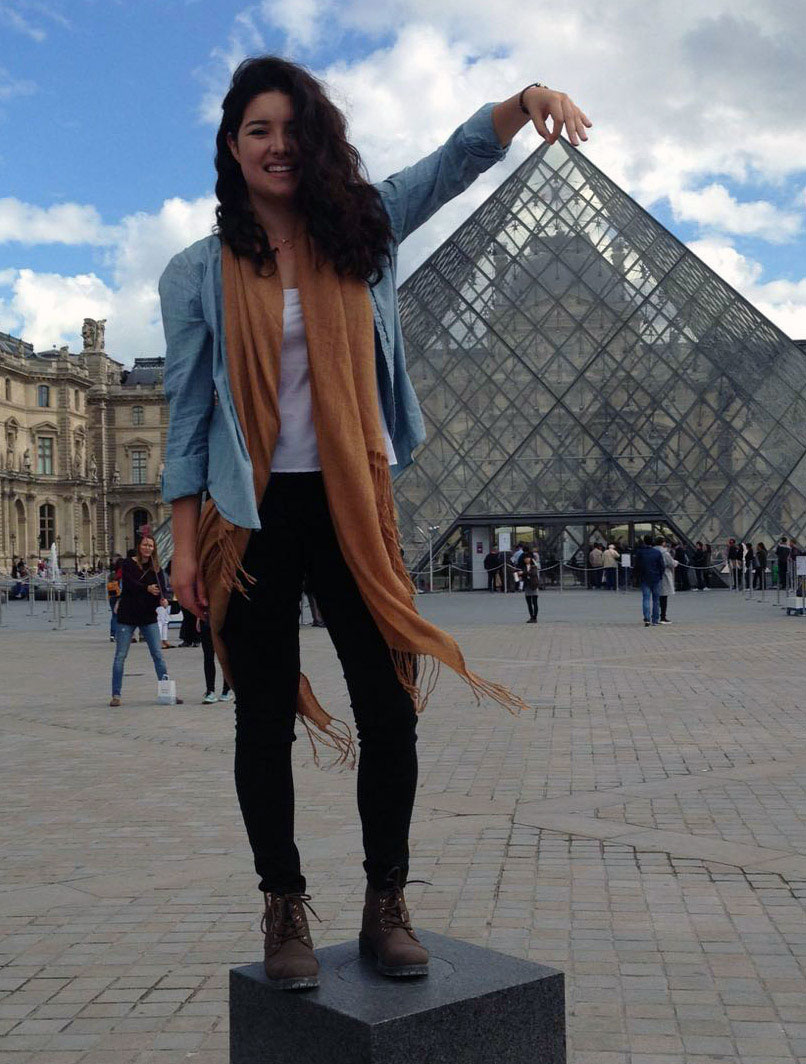
Maria Natalia Noriega Pedraza
With this monthly column, the College of Engineering highlights the Drexel cooperative program in which students fulfill six-month internships in fields of their own choosing to gain experience and to see how they like the work. But what, exactly, is that work? What does a co-op student do all day? What are the tasks assigned? And what time is lunch?
With these pressing questions in mind, CoE publishes the second installment of A Day in the Life of a Co-op, which deconstructs the work day to provide specific details on what our co-ops do during their eight-hour shifts. This month, CoE introduces Maria Natalia Noriega Pedraza, who completed a dual-program co-op in France and in Germany. Below, we focus on her work in Germany.
Name: Maria Natalia Noriega Pedraza
Class: 2019 Department of Materials Science and Engineering, BS
Co-op: Fraunhofer Institut, Stuttgart, Germany, 2017
Work Performed: Analyzed nanoparticles and characterized them using different analytical methods to quantify functional groups available in the surface
| 6 a.m. |
Start day with an early morning run through Stuttgart; have breakfast; grab backpack; head out the door. |
| 8 a.m. |
Take train 30 minutes to work in Stuttgart; walk 10 minutes to the office and lab. |
| 9 a.m. |
Grab a cup of coffee; log onto computer; check all emails, respond to the most important; read any articles from advisor regarding the day’s work; call the front desk for any delivered chemicals; pick up and store the delivered products accordingly. |
| 10 a.m. |
Analyze the results of the previous day’s experiments to determine next starting point; do calculations; reserve any machines to be used during the day. |
| 11:30 a.m. |
Lunch break, “which I found very early.” For the sake of esprit de corps, join colleagues and peers in lunchroom at the “very nice” cafeteria. |
| 12:30 p.m. |
Set up work area for ideal working conditions—close curtains to avoid UV light which may affect the reaction, inform co-workers of planned experiment to ensure no interference, weigh and measure reagents according to calculations made; prepare solutions and perform experiments for about three hours, with monitoring every 20 minutes. |
| 3:30 p.m. |
Clean up glass wear and other lab supplies used during the experiment. |
| 4 p.m. |
Back to desk to transcribe the results from the day onto desktop computer, and summarize the day’s work. |
| 4:30 p.m. |
Talk with advisor to present and discuss day’s results; talk about the next step. |
| 5 p.m. |
Finish for the day; have dinner at home or with fellow students, or visit museums and open-air plazas in Stuttgart. |
TAKEAWAY: “Living abroad in a city without knowing anyone taught me to be very independent. Germans are really efficient in their work atmosphere, so I learned a lot from that, too. The German culture also taught me environmental consciousness: my flatmate recycled everything, and in the supermarkets you could see how there was so much recycling. But just in general, students who have the opportunity to go abroad should take advantage of it to see different cultures. It’s just a beautiful experience.
“In my co-op, I realized how much I enjoy doing research. I basically decided that I would do a PhD because of that work. I loved the continuous learning environment. But it also taught me that, having so many responsibilities, you have to take your work very seriously. You have to be very careful and avoid errors because people are counting on your results. And those results are not only for a grade, but for general knowledge and to support research.”